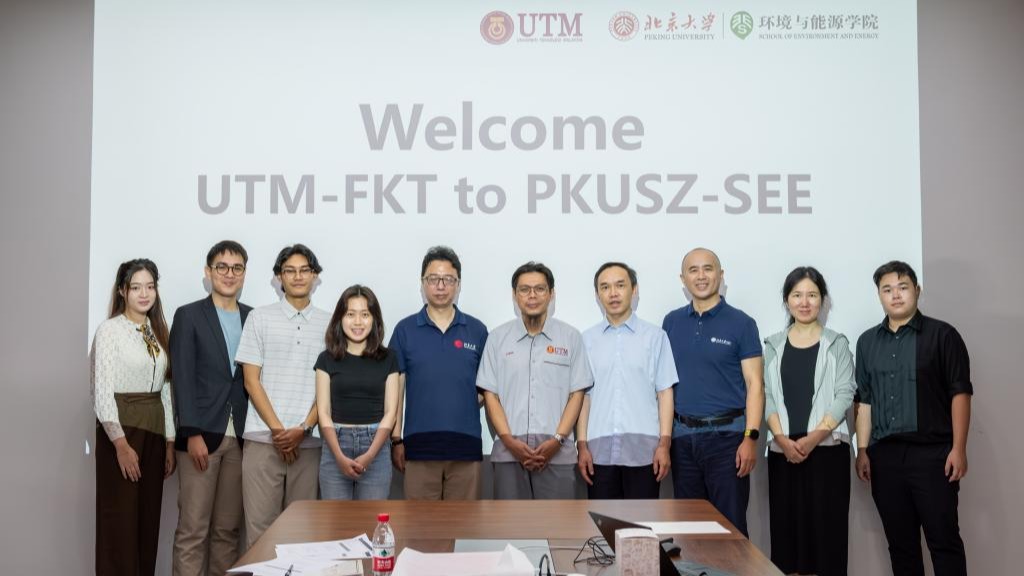Comprehensive Environmental Field Study I is a foundational experiential course offered by Peking University’s College of Environmental Sciences and Engineering (CESE) for undergraduate students. The Shenzhen track integrates the concept of new quality productive forces (innovation-driven development), enabling students to directly witness technology empowering environmental solutions. More than practical training, it ignites professional passion and cultivates comprehensive skills. This year’s theme was “Future Technology and Natural Harmony.”
The week-long Shenzhen field trip, running from June 22nd to June 28th, featured faculty leaders Professor Liu Wen (Chair, Department of Environmental Engineering, CESE) and Assistant Researcher Shang Dongjie (Department of Environmental Science, CESE). Dr. Liu Fuyang (Postdoctoral Researcher, Environmental Engineering) provided full-time support. Crucially, School of Environment and Energy (SEE), Peking University Shenzhen Graduate School played a pivotal role throughout the course, fostering collaboration between Peking University's Beijing and Shenzhen campuses.
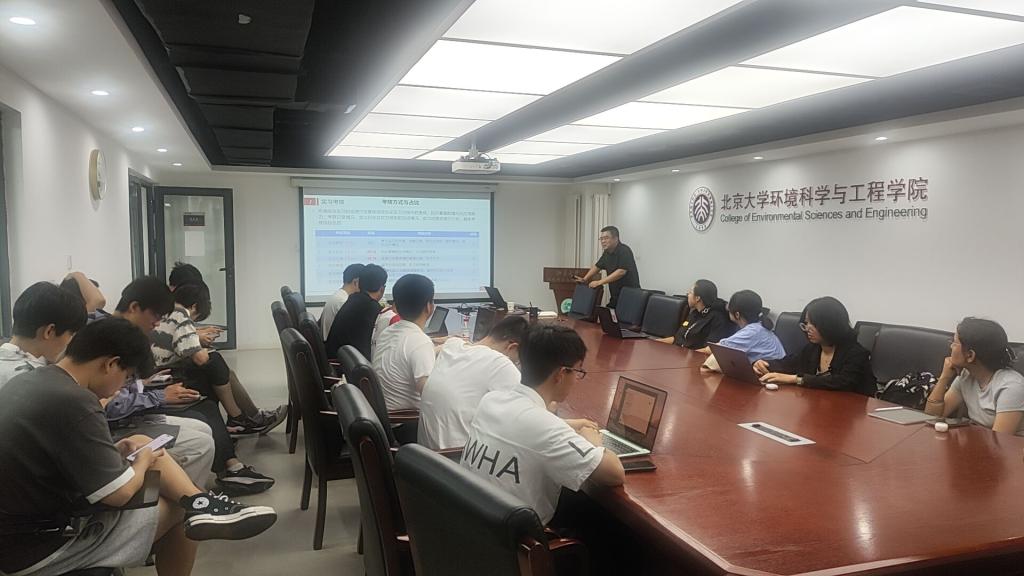
Leveraging Shenzhen's unique resources and cutting-edge insights, SEE provided comprehensive logistical and academic support. From curriculum design and site coordination to on-ground expert guidance and operational management, SEE ensured students gained direct exposure to Shenzhen's forefront explorations and innovations in ecological governance, green technology, and sustainable industry.
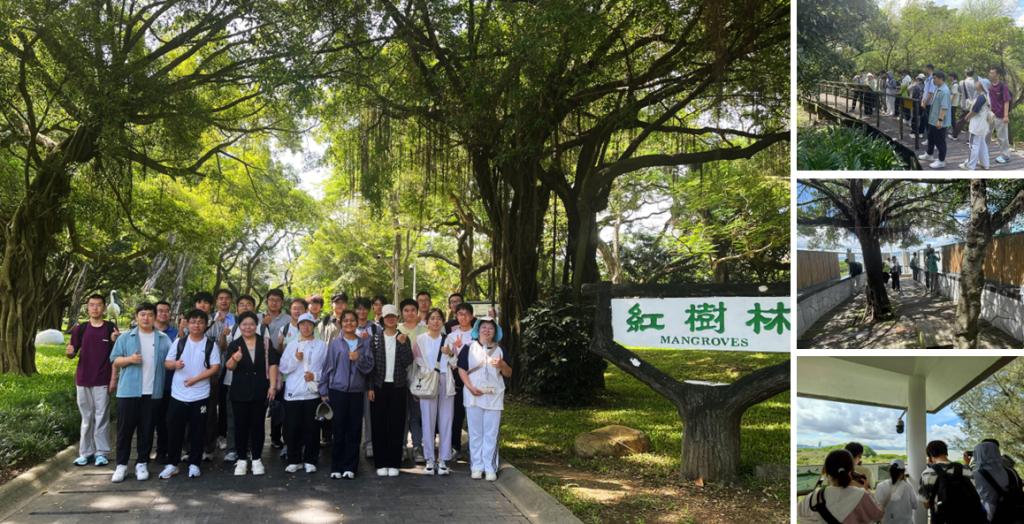
Exploring Shenzhen's Model of "Natural Harmony" was a core focus. At Futian Mangrove National Nature Reserve, guided by expert Li Ruili, students observed unique mangrove adaptations like pneumatophores (breathing roots), vivipary (seed germination on the parent tree), and salt secretion. This deepened their understanding of these "Coastal Guardians" within the urban core, vital for biodiversity and carbon sequestration. The Fengtang River Estuary Ecological Restoration Project showcased scientific management reviving a degraded estuary into a model of urban-nature coexistence. Systematic Sponge City practices in Guangming District, integrating key technologies like stormwater management at Shenzhen Institute of Technology (SIT), innovative drainage on Gongchang Road, the multi-level drainage system in Science Park, and the multi-functional Lou Village Wetland, comprehensively demonstrated Shenzhen's "resilient city" wisdom.
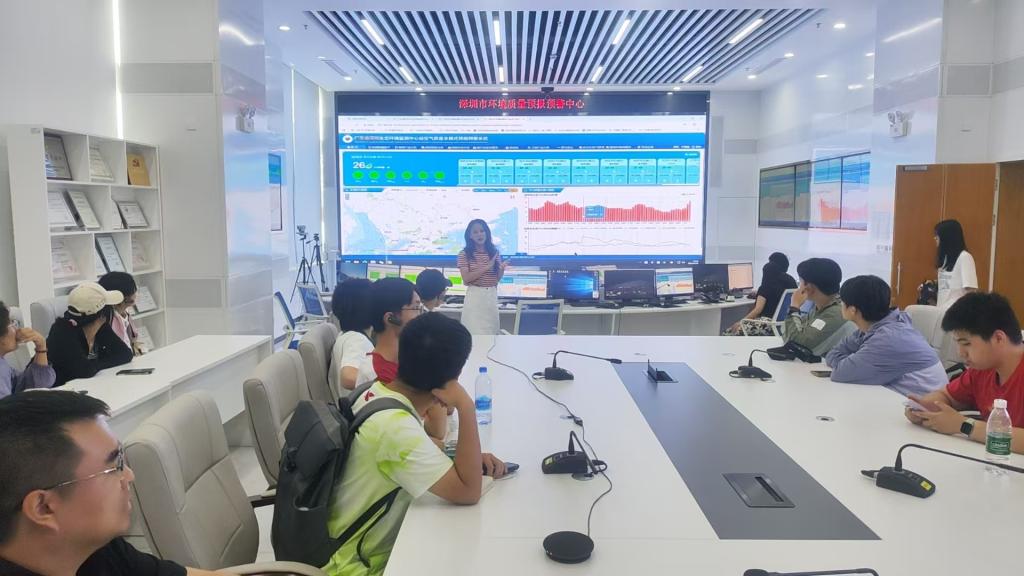
Experiencing "Future Technology" Empowering Environmental Governance was tangible throughout Shenzhen. At Gushu Phase II Wastewater Treatment Plant, modern processes and the ethos of "Excellence in Every Drop" clearly demonstrated the technological achievement of transforming wastewater into clean water. Nanshan Energy Eco-Park's breakthrough lies in converting a potential "Not-In-My-Backyard" (NIBY) facility into a "Benefit-My-Backyard" (BIMBY) asset through advanced waste-to-energy incineration and stringent flue gas purification. The visit to BXWR Technology revealed how sensor networks and intelligent early-warning systems are shifting environmental management from "reactive treatment" to "proactive prevention and control."
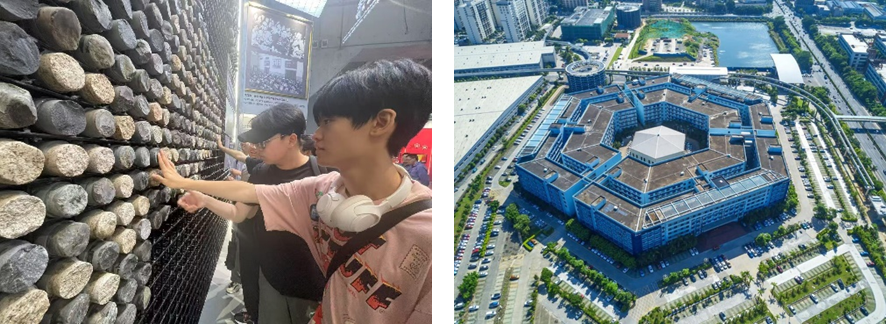
Witnessing the Transformative Power of Green Energy & Transportation was another key objective. The visit to the Daya Bay Nuclear Power Base, featuring its "defense-in-depth" safety system, emission controls exceeding national standards, and expert insights on nuclear waste management, reshaped participants' understanding of nuclear power's safety and environmental credentials. At BYD's "Hexagon" Headquarters, experiencing core technologies like the Super DM-i hybrid system and e⁴ Torque Control, alongside a ride on the autonomous " Yunba " transit system, gave students a profound understanding of how technological innovation drives the green, low-carbon transformation of transportation.
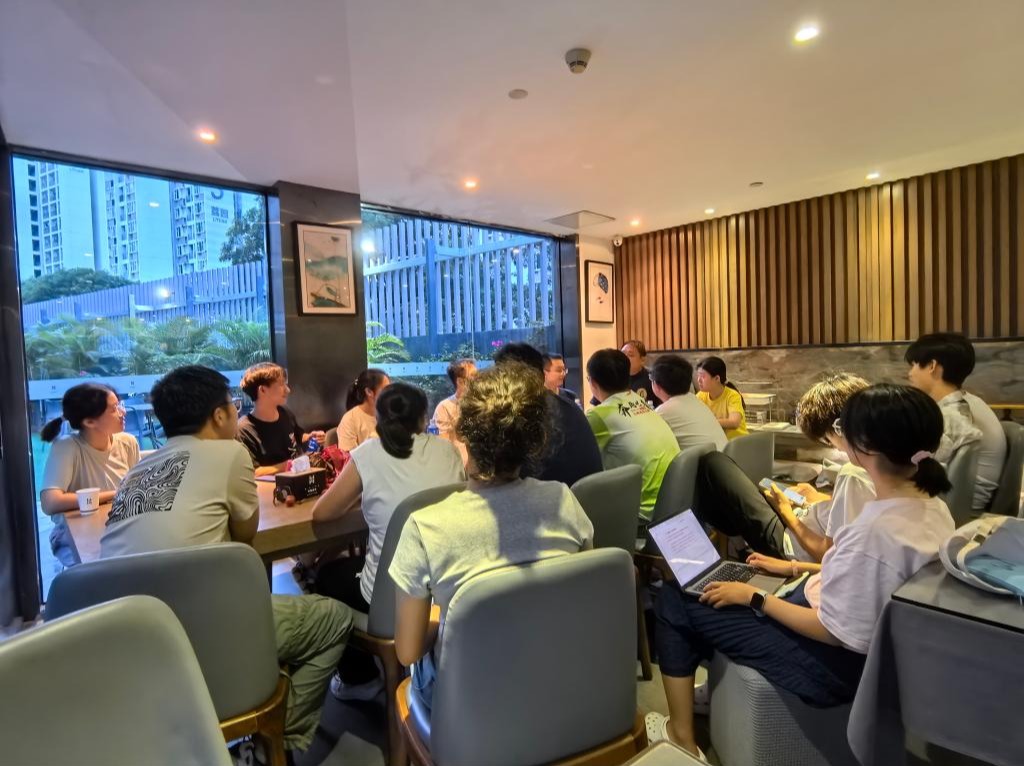
Seven days of intensive immersion proved both profound and transformative. Engaging with frontline environmental innovators crystallized our understanding: while the path toward an ecological civilization demands perseverance, its promise shines undimmed. We now pledge our intellect and passion to this vital cause—harnessing technology as a force for shared human-natural prosperity, vigilantly guarding against its potential as an instrument of alienation. With resolve, we advance toward a sustainable future. As guardians of verdant peaks and crystalline waters, as torchbearers beneath boundless skies and seas—we, the rising generation of environmental stewards, stand ready.






